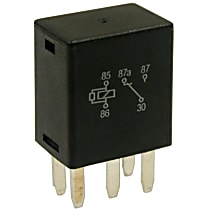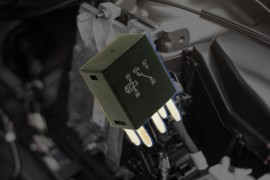{
"lazyNodes": false,
"abFitnotesFlag": false,
"abCrawlReviews": true,
"productOptionsCookie": false,
"orderDelayFlag": false,
"skipSessionCookie": false,
"covidMessage": false,
"fullTitleCookie": false,
"nrLoggerCookie": true,
"checkoutReviewCookie": false,
"productOptionSeqCookie": false,
"maintenanceFlag": false,
"bufferETACookie": false,
"multiShippingDiscountFlag": false,
"newFitmentFlag": false,
"surveyOptInFlag": true,
"crossSellFlag": false,
"skuMappingFlag": false,
"paySplitCookie": false,
"callDisableFlag": true,
"zipPaymentFlag": "c",
"hassleFreeReturn": true,
"lifetimeReplacement": true,
"cpn_off": false
}Need help?Chat with us
2003 Chevrolet Silverado 1500
2003 Chevrolet Silverado 1500 Powertrain Control Module Relays
Refine by:
Shop Catalog
Showing 1 - 1 of 1 results
Sort by:
Part Number: SIRY232
Guaranteed to Fit
$9.99
Vehicle Fitment
- 2003 Chevrolet Silverado 1500 All Submodels All Engines
Product Details
Notes : Multi-purpose relayProp 65 Warning :
![]() WARNING: This product can expose you to chemical which is known to the State of California to cause cancer and birth defects or other reproductive harm. For more information go to www.P65Warnings.ca.gov.
WARNING: This product can expose you to chemical which is known to the State of California to cause cancer and birth defects or other reproductive harm. For more information go to www.P65Warnings.ca.gov.
Page 1 of 1 | Showing 1 - 1 of 1 results
Popular Products

StandardPowertrain Control Module RelayManufacturer #RY-232
( Reviews) Questions, Answers
STANDARD OE REPLACEMENT POWERTRAIN CONTROL MODULE RELAYS
Restore your ride to full function with the OEM-grade quality assurance and standard-setting performance offered by Standard’s OE replacement powertrain control module rela...
Product Questions & Answers
Q:where is the pcm relay located on a 97 chevy s10 v6?
curtis d.
A:BEST ANSWERHi Curtis,
For relay location reference, please check your vehicle's manual or you may reach out to your local dealership, parts department. They may be able to help. Show less
Aldrin P.
3 Questions, 1 AnswerView all Q&As >
Related Parts


Helpful Automotive Resources
P2510 Code: ECM/PCM Power Relay Sense Circuit Range/PerformanceAs voltage is supplied to the relay’s coil, a magnetic field is formed and pulls an armature down to close the contact points. This process lets voltage flow to the output side of the relay, powering the device it controls.


